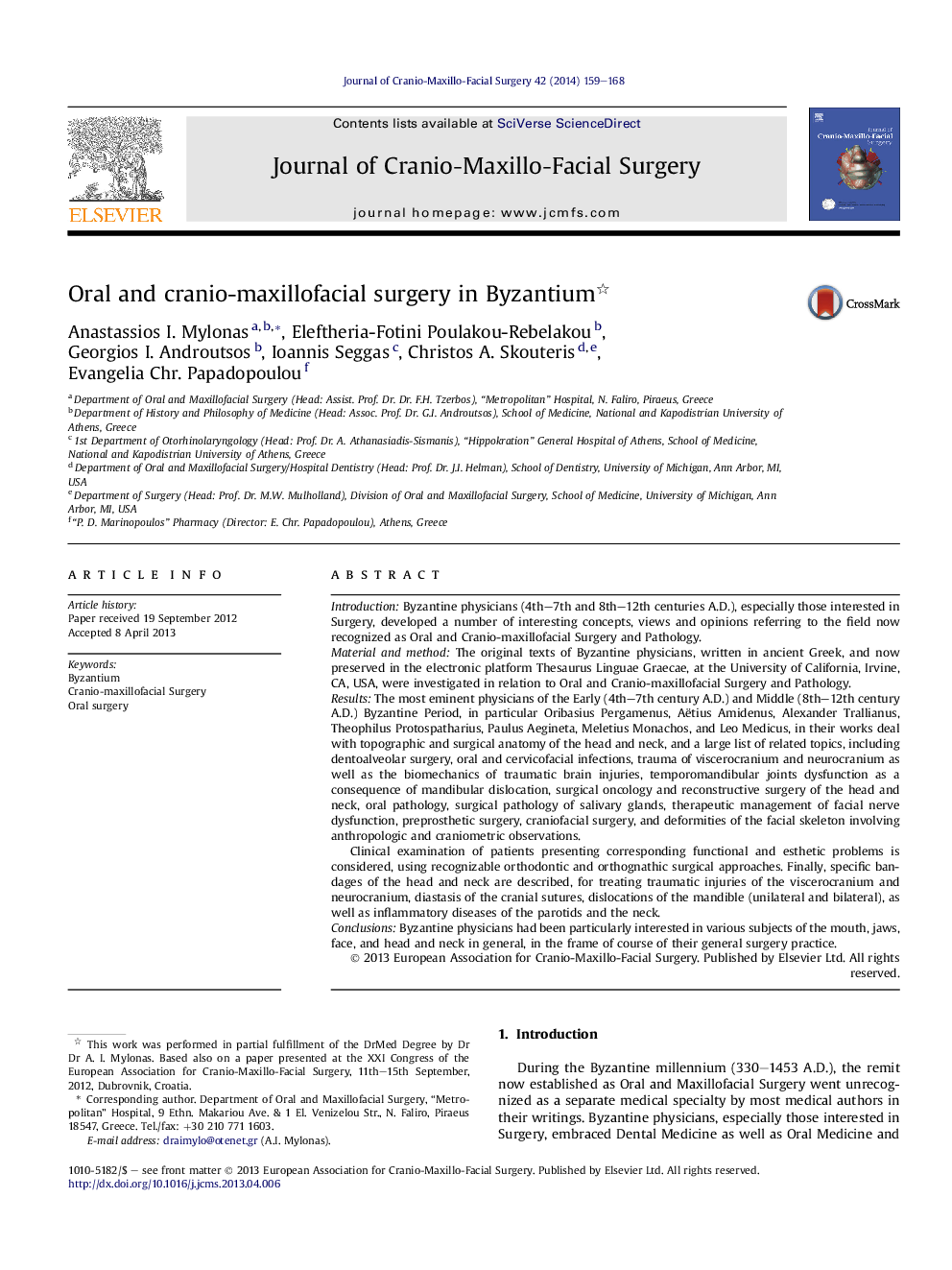| Article ID | Journal | Published Year | Pages | File Type |
|---|---|---|---|---|
| 3142923 | Journal of Cranio-Maxillofacial Surgery | 2014 | 10 Pages |
IntroductionByzantine physicians (4th–7th and 8th–12th centuries A.D.), especially those interested in Surgery, developed a number of interesting concepts, views and opinions referring to the field now recognized as Oral and Cranio-maxillofacial Surgery and Pathology.Material and methodThe original texts of Byzantine physicians, written in ancient Greek, and now preserved in the electronic platform Thesaurus Linguae Graecae, at the University of California, Irvine, CA, USA, were investigated in relation to Oral and Cranio-maxillofacial Surgery and Pathology.ResultsThe most eminent physicians of the Early (4th–7th century A.D.) and Middle (8th–12th century A.D.) Byzantine Period, in particular Oribasius Pergamenus, Aëtius Amidenus, Alexander Trallianus, Theophilus Protospatharius, Paulus Aegineta, Meletius Monachos, and Leo Medicus, in their works deal with topographic and surgical anatomy of the head and neck, and a large list of related topics, including dentoalveolar surgery, oral and cervicofacial infections, trauma of viscerocranium and neurocranium as well as the biomechanics of traumatic brain injuries, temporomandibular joints dysfunction as a consequence of mandibular dislocation, surgical oncology and reconstructive surgery of the head and neck, oral pathology, surgical pathology of salivary glands, therapeutic management of facial nerve dysfunction, preprosthetic surgery, craniofacial surgery, and deformities of the facial skeleton involving anthropologic and craniometric observations.Clinical examination of patients presenting corresponding functional and esthetic problems is considered, using recognizable orthodontic and orthognathic surgical approaches. Finally, specific bandages of the head and neck are described, for treating traumatic injuries of the viscerocranium and neurocranium, diastasis of the cranial sutures, dislocations of the mandible (unilateral and bilateral), as well as inflammatory diseases of the parotids and the neck.ConclusionsByzantine physicians had been particularly interested in various subjects of the mouth, jaws, face, and head and neck in general, in the frame of course of their general surgery practice.
